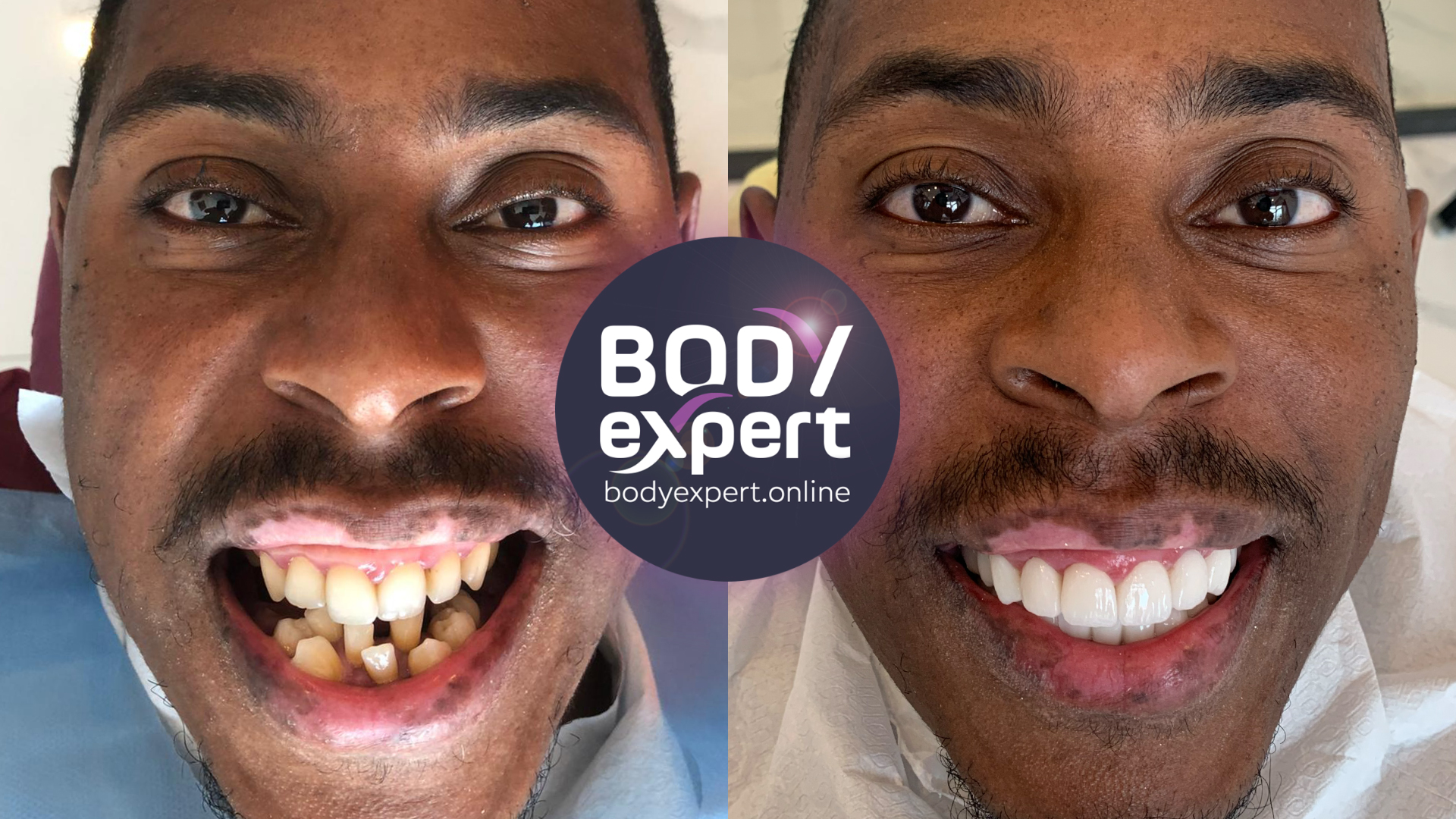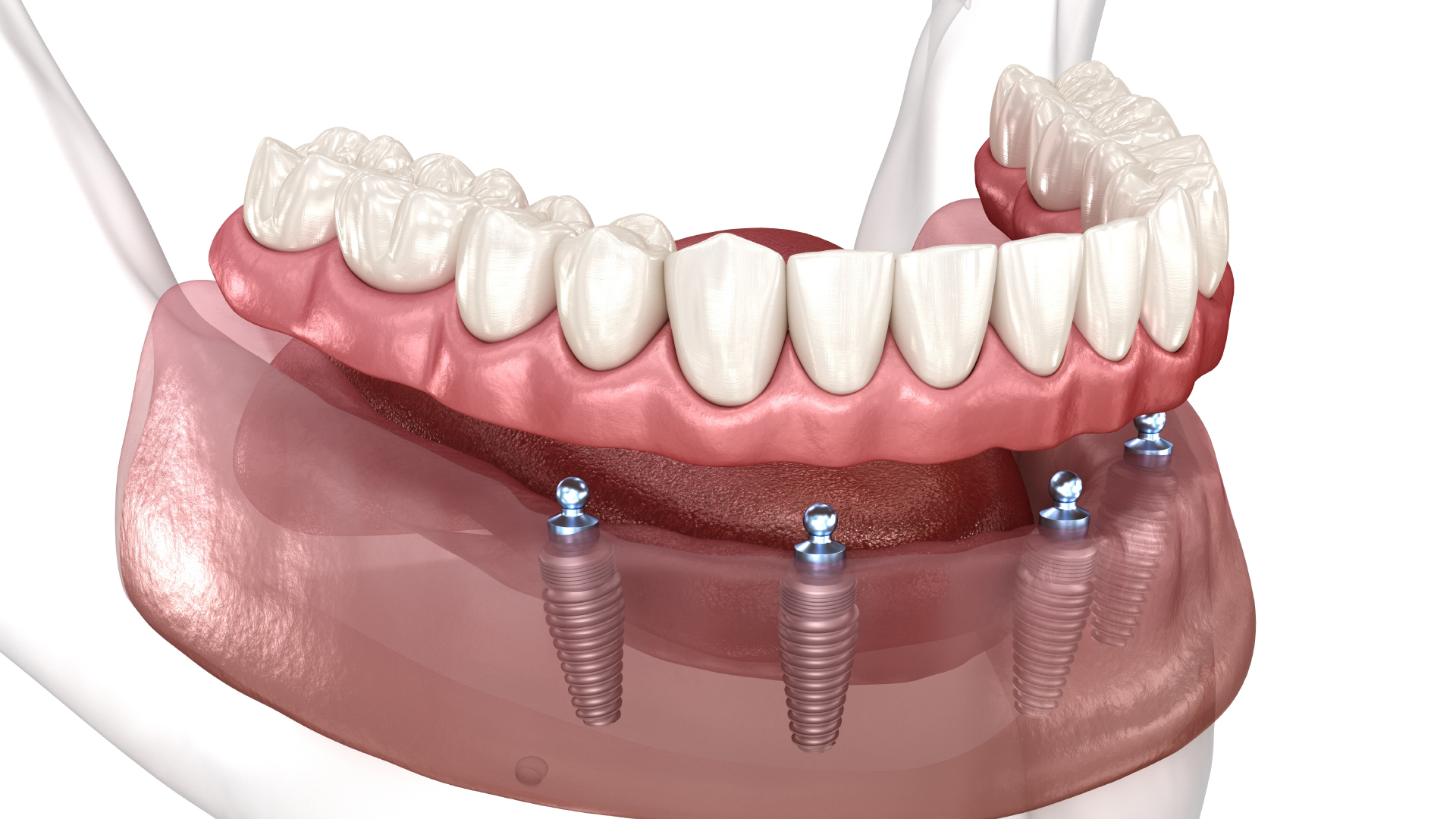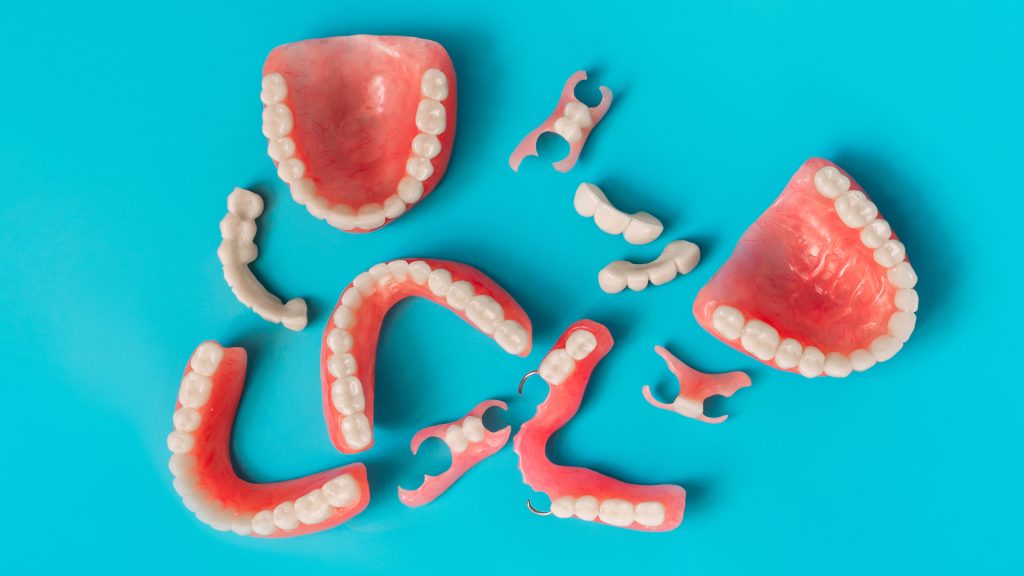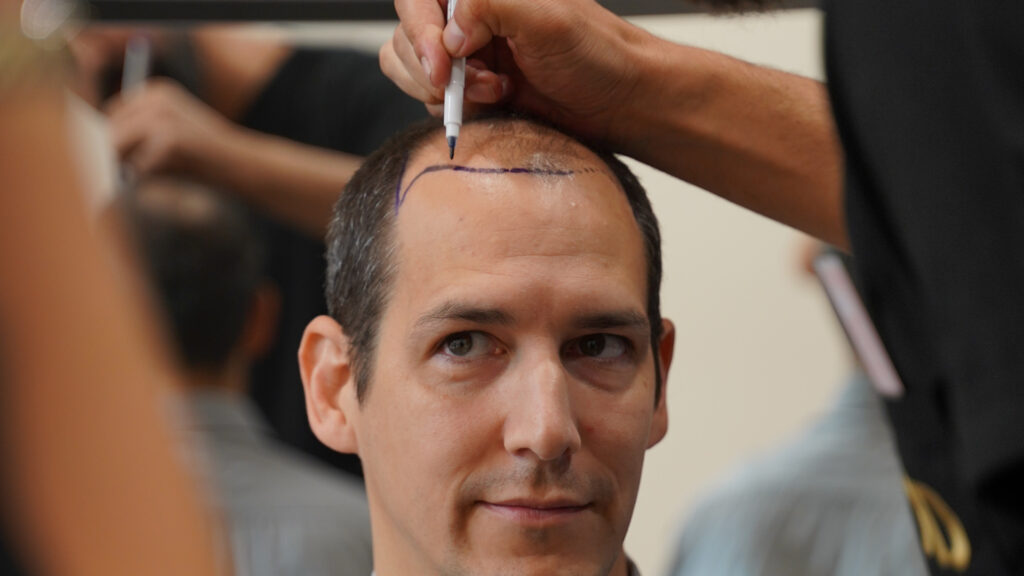Fixed dental plates are a cost-effective solution for replacing one or more missing teeth. This type of denture can raise several questions. Find out everything you need about fixed dental plates, their advantages, disadvantages, and alternatives.
What are fixed implant dentures used for?
Fixed dental plates are dentures used to replace missing or damaged teeth quickly. This device restores the jaw’s functionality and provides a satisfactory aesthetic result. For example, it provides a solution for patients who have lost teeth because of a disease such as periodontitis or poorly treated teeth.

A dental surgeon can propose this type of dental prosthesis to replace the natural dentition. The fixed dental plate will help regain functional physiological chewing and maintain good speech. Being clipped onto implants or fixed with a retention bar, these devices offer good stability, which full dentures or removable partial dentures cannot provide.
The principle of fixed implant dentures
Fixed implant dentures consist of a false gum, on which prosthetic teeth are mounted, and a false bridge. The false palate rests against the patient’s palate to ensure that the prosthesis is watertight and stable.
Installing a fixed dental plate on an implant takes place in several stages. In the first operation, the dental surgeon places the dental implants in the jawbone. The number of implants varies depending on the solution adopted.

Before the prosthesis is placed, a healing period is necessary. This healing period, called osseointegration, varies from 3 to 6 months. It allows the implants to attach themselves firmly to the bone wall of the jaw.
Once the healing period is over, the fixed implant-supported denture can be integrated into the jaw.
The types of implant-supported dentures
There are two implant-supported dentures: the clip-on implant-supported denture and the fixed dental plate with a retention bar. Each of the two solutions has advantages and disadvantages.

Clipped dentures on implants
The clipped denture is stabilized on dental implants via snaps. The dental implants are inserted into the jawbone and will clip the welded parts to the denture. This complete resin denture, similar to the classic denture, is an easy-to-maintain solution. There is no need for dental glue to hold your device in place. Clip-on dentures on implants are one of the most cost-effective fixed full denture solutions.

Fixed dental plates with retention bars
The denture clipped to a retention bar is attached to the implants with a metal bar and flexible jumpers used to provide retention through a clipping effect. The bar can be attached to 3 or 4 implants, preventing the appliance from moving, thus relieving the gums. The main disadvantage of this type of fixed dental prosthesis lies in its maintenance. Indeed, to dislodge food debris, it will be necessary to clean well underneath and all around the bar using dental brushes.
The advantages and disadvantages of fixed dental plates
The main advantage of fixed dental plates is that they are durable solutions that do not require dental glue, unlike removable dentures. This feature eliminates the possibility of the denture falling out or coming out of the mouth when you least expect it. The fixed dental plate is minimally invasive and uses specially designed implants that are easily and quickly installed. The technique generally avoids the need for bone reconstruction and grafting in most cases. Fixed dental plates are particularly economical, allowing you to restore your chewing function without going into debt for several years. However, this low price does have some significant drawbacks.
The main disadvantage of fixed dental plates is aesthetics, as this device has a resin edge that covers the gums and partially the palate. Comfort is also a consideration when choosing your solution. In the case of fixed dental plates, the false palate is generally uncomfortable for many patients. Also, snap-on dentures on implants or retention bars are less comfortable for many patients.

What are the alternatives to fixed dental plates?
There are several other types of dentures to replace damaged or missing teeth:
- Complete unimaxillary or bimaxillary dentures: these replace the entire dentition. Often fixed with denture glue, it is removable for easy maintenance. However, this device must be changed every 5 to 10 years and adjusted regularly to stay in place. Many patients choose this type of denture because it is less expensive than full bridges on implants or fixed dental plates.
- Partial denture: This device is attached to the gums and remaining teeth with clasps. It can be chosen to replace one or more teeth.
- Full bridges on implants: A full bridge is a dental prosthesis attached to the jawbone through 4 (all-on-4), 6 (all-on-6) or 8 (all-on-8) titanium pieces. Without a false palate, the screw-retained dental prosthesis is the most aesthetic, comfortable, and effective way to regain real chewing comfort in the long term. The full bridge on implants provides a natural and durable result. While the All-on-4, which uses 4 implants to stabilise the denture, is the least expensive device, we recommend you choose an All-on-6 for greater comfort and stability. In fact, the All-on-6 is the best solution for patients who want the best value for money in fixed dental plates. If you don’t want a false impression and are concerned about your procedure’s aesthetic outcome, consider an All-on-6.

Thanks to their know-how, Body Expert’s implantology experts will be able to advise you on the most suitable solution for your case. Whether you want to reconstruct your entire dentition, just a complete arch or just a few teeth, Body Expert is at your side to make your project a reality in the best conditions.

The price of fixed dental plates
The price of a fixed dental plate depends on the materials used to make the denture. The teeth can be made of resin or porcelain, making the cost of the device almost double. In the case of wax, its quality can influence its price.
The dentist’s fees also impact the price of fixed dental plates. From one practitioner to another, and from one country to another, the price differences for a fixed dental plate can be significant.
With your dentures made in Turkey, you can save up to 70% compared to the prices in the United Kingdom. In the UK, no reimbursement by the NHS will be possible when the appliance requires implants. Body Expert has selected the most reputable dental clinics in Istanbul to ensure the best care at the best price. You will be taken care of by an experienced medical team and a renowned surgeon without paying a high price. For fixed dental plates in Turkey with Body Expert, please find below the prices per full jaw in all-on-6 according to the category of implants.
For a complete jaw set with All-on-6
| UK | US | Holland | Turkey | Hungary | Spain | |
| High-end*** | £24000 | $34,000 | 31000€ | 6000€ | 10500€ | 13300€ |
| Medium range** | £16000 | $26,000 | 20000€ | 5000€ | 8000€ | 10000€ |
| Entry-level* | £14000 | $22,000 | 14400€ | 4150€ | 7800€ | 9500€ |
Please note: this comparison is based on an all-on-6 consisting of 6 Straumann implants and 12 Emax crowns per jaw. Please pay attention to the brands and models proposed by other providers than Body Expert, the prices may be lower but the quality lower.
* the entry level is the Neodent model from Straumann at Body Expert
** the mid-range is the Straumann Medentika model from Body Expert
*** the top of the range is the Straumann model from Straumann at Body Expert
The type of prosthesis that tops the implants at Body Expert is a 100% zirconium crown for maximum resistance and a 7-layer Emax finish by hand for a natural aesthetic result.
Why get your fixed dental plates fitted in Turkey
To have your fixed dental plates fitted in Turkey, and in general, to carry out your dental care there remains a privileged solution to benefit from an impeccable quality of care. Having your teeth restored by an experienced dental surgeon is essential to regain excellent phonetics and allow your teeth to play their functional and aesthetic roles again.
Turkey has become a worldwide destination for dental treatments in just a few years. The country owes this reputation to its desirable prices and the expertise of Turkish dentists. Turkish practitioners benefit from advanced training and hold a recognised diploma like those obtained in the UK.
In terms of infrastructure, Turkey, particularly Istanbul, benefits from the best clinics and technologies. Planning your dental treatment in Turkey allows you to discover the cultural richness of Turkey, and why not extend your stay to visit its most beautiful attractions?
23201 vues
0 commentaires
0






Il n'y a pas de commentaires pour le moment.